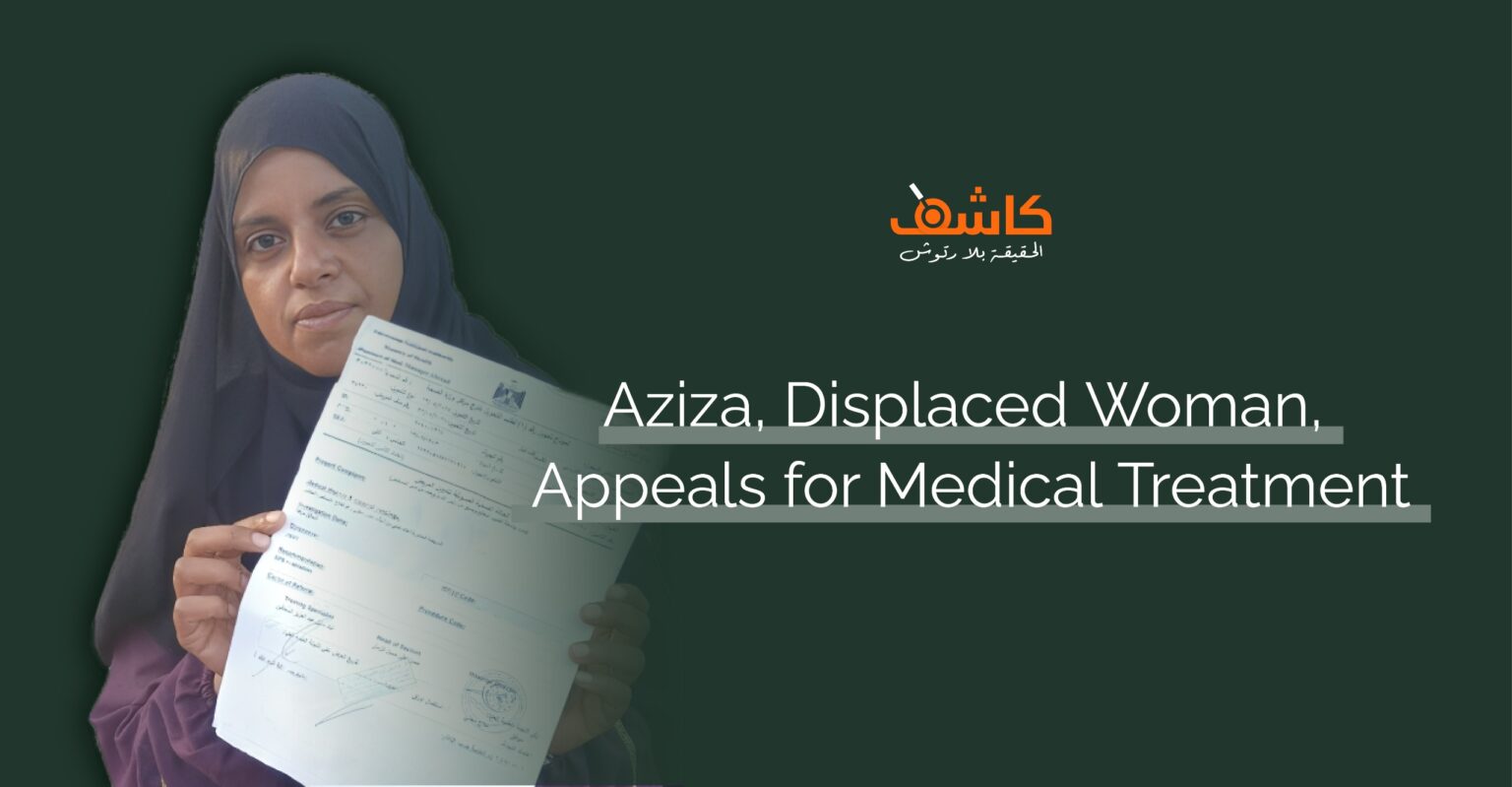Gaza – Angham Yousef
“Nothing can ever compensate a person for their health—everything else becomes insignificant compared to it,” says 43-year-old Aziza Abu al-Naja, describing her physical and psychological suffering after being displaced from Rafah to al-Mawasi, Khan Younis, as a result of the ongoing war of extermination against Gaza’s residents. Her condition has worsened due to the lack of proper treatment necessary to live a normal life.
Aziza, unmarried and originally born in Saudi Arabia, recalls: “I used to live in Rafah’s al-Jeneina neighborhood, relatively stable financially. I never remember lacking food, clothes, or medical care. But this is a brutal war where human life no longer has any value.”
She suffers from a congenital heart condition—electrical activity in the heart muscle—that disrupts her daily life. “I cannot walk long distances or sit in tight spaces, as I experience shortness of breath. I am forbidden from wearing bras or tight clothing, and I cannot sleep uncomfortably. My condition is part of chronic cardiac arrhythmia; palpitations come suddenly—while I am asleep, walking, sad, anxious, or stressed—with no warning.”
Three of her sisters suffer from the same hereditary condition. She was in need of a surgical procedure called cardiac ablation, but war prevented her from undergoing it. “Since then, I have remained on medication. Although the World Health Organization approved my medical referral for treatment abroad, I have been unable to travel for nearly a year and a half.”
Aziza explains how she used to secure her medication: “In Rafah, I bought it from pharmacies at my own expense or through distributors I knew in pharmaceutical companies. Since the war began, it completely disappeared. When I was displaced, I tried to stockpile as much as I could, but for the past year, I have run out. I even stopped treatment for days, and my health deteriorated until some displaced people guided me to the MSF (Doctors Without Borders) clinic.”
But there, disappointment awaited her. “When I explained my condition, the doctor said the medication was unavailable. Instead, they would provide an alternative whenever it was in stock, with different dosages than my prescribed medication. I used to take one specific drug, but now I take a substitute in varying amounts, which has destabilized my health.”
Before the war, Aziza was followed regularly by a cardiologist. Today, because of financial constraints, destroyed clinics, and long distances, she only sees a general practitioner at the medical point—“a routine measure, not the specialized care my condition requires.”
Her health continues to deteriorate. On her last visit, her medication was unavailable due to border closures and severe shortages in medical supplies.
She now suffers additional complications from inconsistent treatment and psychological strain: “I experience low blood pressure, extreme fatigue, and the hardships of displacement—living in tents, walking long distances for basic needs—all of which increase my palpitations and put my life at risk.”
Aziza appeals to all relevant authorities and anyone able to help: “I urgently need support to travel, undergo surgery, and save my life.”
